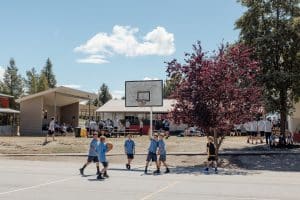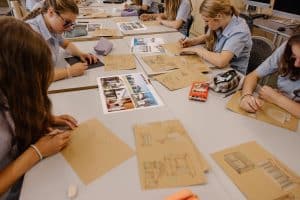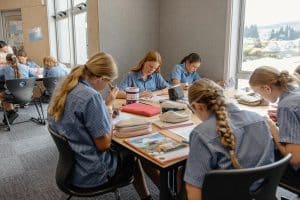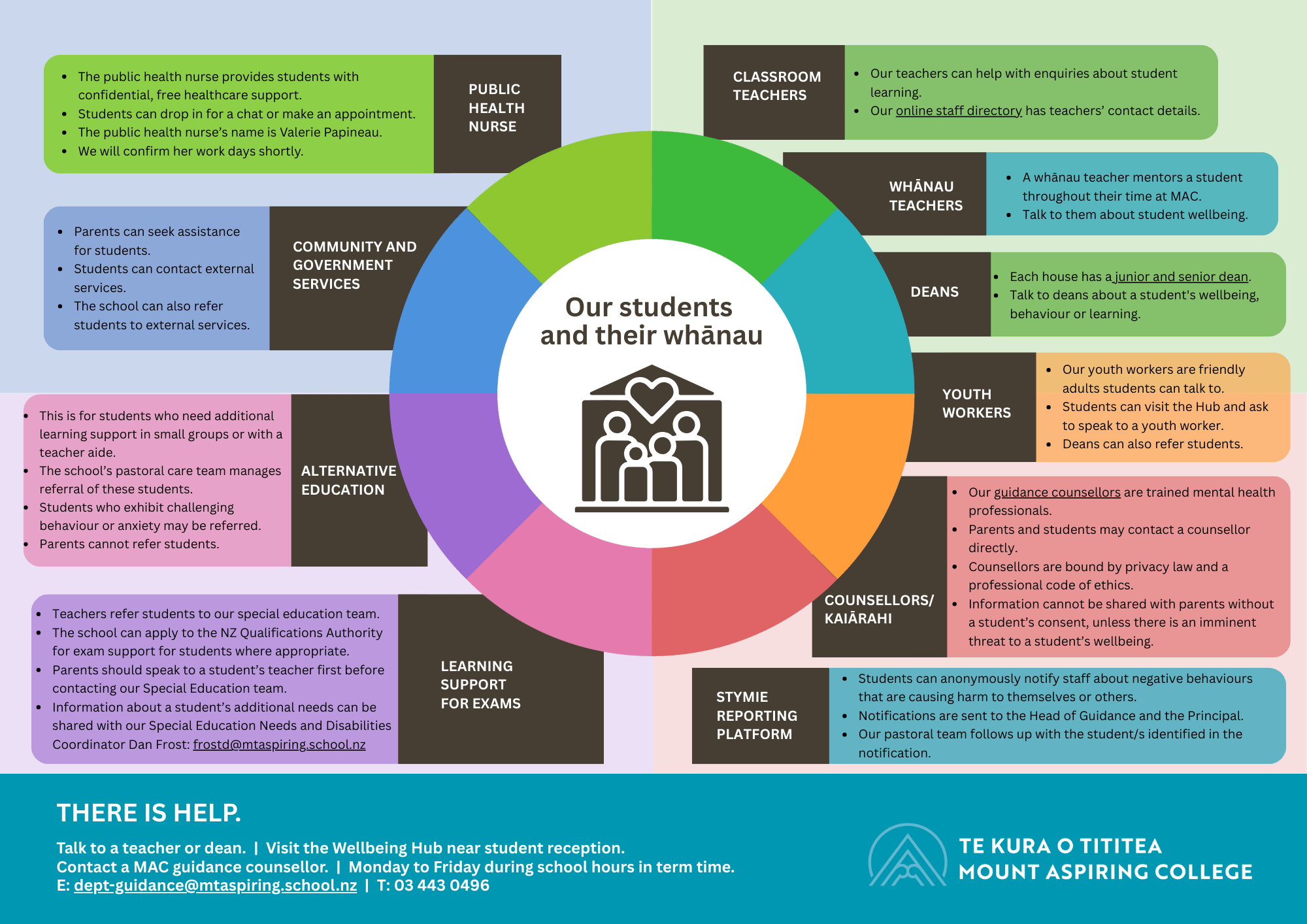STUDENT WELLBEING
When young people feel valued and supported, they are able to feel confident in who they are, engage with their learning, and feel optimistic about the future. This is why we put our students’ wellbeing at the centre of our educational approach, work hard to promote relationship-building with kindness, and respond to bullying behaviour when it occurs. Prioritising student wellbeing by building a safe, caring and inclusive environment, is central to our approach in preventing and responding to bullying. We promote a culture of kindness to help prevent bullying, and when bullying behaviour happens, we have a specialist team to respond.
Wellbeing Strategy: ‘Being Well at MAC’
Our Wellbeing Strategy outlines the School Board’s emphasis on, and approach to, wellbeing, and provides a framework to guide decisions, allocate resources, and evaluate progress. It is supported by an evolving operational wellbeing plan designed and delivered by the college’s leadership team, with input from the board, in line with the school’s strategic plan and school values. You can read the Wellbeing Strategy here.
Support for our students and their whānau
Kaiārahi/Counsellors
Our school guidance counsellors are trained professionals who provide mental health and wellbeing services to our students, their parents and families, and our staff. Our counsellors offer individual counselling and group/class work to assist with creating a positive and inclusive culture at our school with a focus on the whakatauki, ‘kindness instead of bullying’.
Deans
Our deans encourage our students to live by our school’s values and support students in developing the personal and life skills they will need to be successful contributors to our community when they leave school. There is a junior and senior dean for each of the four houses, with the junior deans being responsible for students in Years 7 to 10 and the senior deans for students in Years 11 to 13. The deans form strong relationships with students in their houses, act as advocates for students, and are responsible for supporting students’ wellbeing and achievement.
24-7 youth workers
The role of our 24-7 youth workers is to support our students through one-on-one mentoring, group activities, and by being a familiar face that students can seek out and talk to when they need it. They work with groups and individual students in close collaboration with our counsellors, deans and teachers.
Stymie reporting platform
Stymie allows students to anonymously notify staff about negative behaviours that are causing harm to themselves or others. When a notification is submitted, it is sent to the Head of Guidance and the school Principal. The college’s pastoral team of deans, deputy principals and/or guidance counsellors then follow up with the student/s identified in the notification. Notifications submitted during weekends or school holidays will be reviewed on the next school day. Notifications made after 5:30pm will be seen the following day. To make a notification, please go to the Stymie platform.
Pastoral programmes
We promote a range of programmes designed to create an environment in which students can feel confident in who they are, engage with their learning, and feel optimistic about the future.
Sticks ‘n stones
Sticks ‘n Stones is a youth-led bullying prevention programme that supports students to grow their emotional- and self-awareness so they can stand up for themselves and for others. In Years 7 and 8, our students undertake the programme with a session each week over two terms. Students can also join MAC’s Sticks ‘n Stones Advocate group comprising students from all year levels who come together to promote practical skills to counter bullying, challenge and change attitudes that lead to bullying, and fundraise for anti-bullying organisations.
Positive Behaviour for Learning (PB4L)
Our school promotes the Positive Behaviour for Learning (PB4L) framework which is designed to improve the behaviour and wellbeing of children and young people through a suite of tools that support positive behaviours for learning in education settings.
Peer Support programme
Curriculum
All the Health programmes at MAC are founded on the principle of hauora (a Māori philosophy of health comprising the physical, mental/emotional, social, and spiritual dimensions of well-being) and inclusivity. In our Year 7 and 8 Health programmes,we teach a range of topics that promote kindness and mitigate the risk of bullying behaviour, including: friendships, how to be a good friend, body image, digital citizenship, keeping ourselves safe (in terms of sexuality), relationships, boundaries, responsibilities, diversity and consent, keeping ourselves safe online, and mindfulness. In our Year 9 and 10 programmes, we continue our focus on promoting kindness and mitigating the risk of bullying behaviour, through teaching topics such as: self-esteem, social media, identity and ‘crossing the line’ (a resource based around peer pressure and cyber bullying), healthy relationships, consent, diversity and values, health promotion, and mindfulness.
Student-led committee
Our student-led wellbeing committee works to create a sense of belonging for every student at our school where everyone feels comfortable to be themselves.
Community initiatives
Our school participates in a range of community initiatives that promote kindness and help prevent bullying behaviour, including White Ribbon, Pink Shirt Day and Pride Week.
Educational programmes
We are always seeking opportunities to educate ourselves and our wider school community about behaviours that can help prevent bullying and respond to it when it occurs. In recent years, we have invited a range of respected speakers to present to our school community, including cybersafety expert John Parsons and speakers from Inside Out and Voices of Hope, and we also offer the Loves me not programme and the RYDA road safety education programme for our Year 12 students.
What is bullying behaviour?
The most widely-accepted definitions of bullying comprise five elements:
- Bullying is deliberate.
- Bullying is harmful and not a normal part of growing up.
- Bullying involves a power imbalance.
- Bullying is repeated behaviour.
- Bullying is often disguised as ‘having a bit of fun’ or ‘banter’.
Bullying happens everywhere
Research shows that bullying behaviour occurs everywhere, including in schools, in families, in communities, and in the workplace. This is why it’s important to consider the role of all stakeholders when seeking to prevent and respond to bullying behaviour.
A collaborative approach
We know from research that a coordinated and collaborative approach is the best way to respond to bullying. When the school community, students, staff and whānau work together to address bullying, we are more likely to see positive change in behaviour. Through working together, we can create a safe school culture where positive relationships are prioritised.
Bullying policy
We have a range of policies relating to bullying, its management, and student wellbeing more generally. You can download this information sheet to learn more about bullying and how we handle bullying behaviour at our school, and you can also view our policy documents at the SchoolDocs policies and procedures website and by entering the user code: mtaspiring and password: success
Who to contact
If you believe your child is being bullied or is bullying another child, please contact your child’s classroom teacher. If more support is needed, your child’s teacher will seek assistance from your child’s dean, and the dean will bring in further support as needed from our specialist team of counsellors or senior leaders.
Insights
Our head of guidance counselling Victoria Stewart shares her insights to support our students’ mental health and wellbeing.

The transition back to school
While the smell of new stationery and getting back into routine may be exciting for some, it is also perfectly normal for the transition back to school to bring a few ‘butterflies’ – especially regarding friendships.

Navigating shifting friendships
If you have a child in the junior years (Years 7–10), you’ve likely watched your child’s friendship landscape change along the way.

School refusal: how you can help your child
When your child is having a hard time going to school, it can feel overwhelming for everyone involved.
Case studies
Prioritising student wellbeing is central to our school culture. These case studies show how our pastoral care team can support students when they need it most.

Mia’s story
Mia was 16 years old when she began feeling self-conscious about her body. It all started when a few of her classmates made comments about her appearance.

Emily’s story
Emily was a 15-year-old student who had been feeling overwhelmed by school pressures, friendships, and personal issues at home.

Jack’s story
Jack was 17 years old when he started struggling with feelings of isolation.

